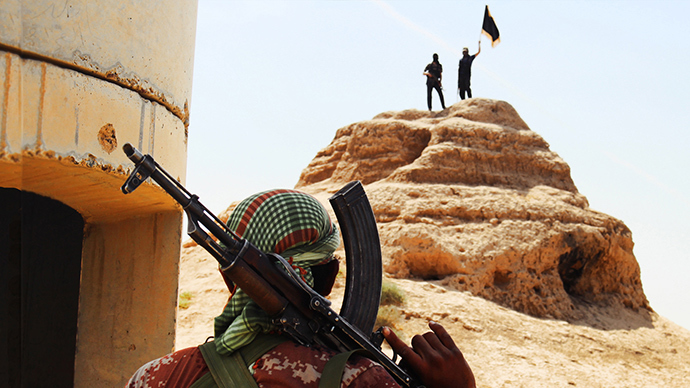‘Appetites of ISIS extend far beyond Iraq & Syria’

Recent events in the Middle East have become a tipping point not only for the region, but the entire world.
The biggest concern now, not to mention Syria, is an extremely complex situation in Iraq. A so-called ‘Islamic caliphate’ has been established in this country and neighboring Syria. It is obvious that the appetites of the Islamic State of Iraq and the Levant (ISIS/ISIL) extend far beyond Iraq and Syria: the Levant historically includes areas now occupied by Lebanon, Jordan and Palestine. This is a vast territory, and it is clear what the consequences would be in the worst case scenario.
Of course, one should not exclude that the terrorists’ far-reaching plans to dismember Iraq may trigger the creation of new entities along religious and ideological lines, as well as the population’s ethnic composition. However, Russia proceeds from the fact that Iraq has been and remains a single state.
Concerted efforts aimed at preserving the territorial unity and independence of Iraq are vital. They can bear fruit only if consolidation and mutual understanding are found within Iraqi society, between the leaders of the three main communities – Shia, Sunni and Kurdish. In that case, Iraq may count on assistance of its international friends. We hope that our Western and regional partners will stand united in the shared desire to help the Iraqis defend the territorial integrity and sovereignty.
It is equally important for the international community to join efforts to effectively combat terrorism. This imminent threat deserves wider understanding. An international meeting is called for in order to collectively address this common problem that now splits the Arab community and the region at large, and threatens to spill over the boundaries of the Middle East.
International terrorist activity is fully felt in Syria, causing further deterioration of the humanitarian situation. That the position of the United Nations Special Envoy to Syria still remains vacant certainly doesn’t help mitigate the Syrian crisis. We continue to believe that the potential of Geneva-2 process is far from having been exhausted.
Obviously, more time is required for negotiations: given the confidence crisis, Syrian parties need to accommodate to each other’s positions. Part of the problem was related to the poor representation of the Syrian opposition at the conference.
Regrettably, now we are told that the Geneva process has no prospects for success. At that, nobody offers anything that could help end the bloodshed. Instead, there are plans underway to arm and finance the opposition to “change the balance of power,” which in reality means continuing the war, and even encouraging it.
The situation in the region is being exacerbated with a flare-up in Israeli-Palestinian violence. Shortly after Palestinian-Israeli negotiations resumed last summer, it became clear that there are a number of profound contradictions between the parties.
The task of finding early mutually acceptable solutions, set by the US Secretary of State John Kerry in 2013, beyond any doubt, was a tall order. But one of the American diplomacy’s fundamental errors was an attempt to direct the negotiation process in such a way that it was carried out almost from a clean slate, while the existing international legal framework for the Palestinian-Israeli settlement was pushed aside.
If talks between the Palestinians and Israelis are to resume, it is necessary to rely upon well-known international legal instruments, including the relevant UN Security Council resolutions, the Madrid principles, the Arab Peace Initiative, and the ‘road map’.
In today's reality it is fundamentally important that the international community is united by an understanding that fighting against terrorism and preventing the collapse of states in the Middle East is the primary task. With all the well-known differences between various international and regional players, a stable, secure and prosperous Middle East is in the interests of all.
The statements, views and opinions expressed in this column are solely those of the author and do not necessarily represent those of RT.
The statements, views and opinions expressed in this column are solely those of the author and do not necessarily represent those of RT.













